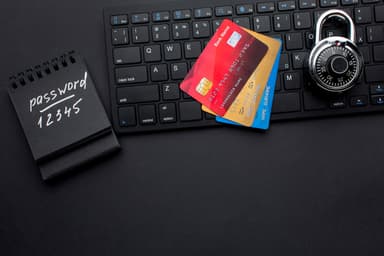Insights


The Importance of Tokenization in Payment Orchestration
Securing Data: The Critical Role of Tokenization in Payment Orchestration
In today’s digital economy, safeguarding sensitive payment information is a paramount concern for businesses across industries. One of the most effective techniques for enhancing payment security is tokenization. As experts in the payments industry, we have witnessed how tokenization can transform payment security and build customer trust.
Introduction to Tokenization
Tokenization is the process of substituting a sensitive data element with a non-sensitive equivalent, known as a token, that has no exploitable value. In the context of payments, tokenization replaces card details (such as the Primary Account Number, or PAN) with a unique identifier or token. This token can be used for processing payments without exposing the actual card details, thereby minimizing the risk of data breaches.
How Tokenization Works in Payments
The tokenization process involves several key steps:
Data Collection: The card details are collected during a transaction.
Token Generation: The card details are sent to a tokenization service, which generates a unique token to replace the sensitive data.
Storage: The token is stored in the payment system, while the actual card details are securely stored in a separate, highly secure environment.
Transaction Processing: During a transaction, the token is used instead of the actual card details, ensuring that the sensitive information is never exposed.
Benefits of Tokenization for Security
The benefits of tokenization for payment security are substantial:
Reduced Risk of Data Breaches: Since the actual card details are not stored in the payment system, tokenization significantly reduces the risk of data breaches.
Enhanced Security: Tokens are unique to each transaction and cannot be used outside the specific context for which they were created, adding an extra layer of security.
Compliance: Tokenization helps businesses comply with data protection regulations, such as PCI-DSS, by reducing the scope of sensitive data that needs to be protected.
Customer Trust: By enhancing security and reducing the risk of fraud, tokenization helps build trust with customers, who feel more confident about sharing their payment information.
Implementation Examples
Tokenization is widely used across various industries to secure payment data:
E-commerce: Online retailers use tokenization to protect customers' card details during online transactions, ensuring a secure checkout experience.
Subscription Services: Companies offering subscription-based services use tokenization to securely store payment information for recurring billing.
Mobile Payments: Mobile payment platforms, such as Apple Pay and Google Pay, use tokenization to secure transactions made with mobile devices.
Impact on Businesses
Implementing tokenization in payment orchestration offers several significant benefits for businesses:
Operational Efficiency: Tokenization simplifies the process of securing payment data, reducing the complexity and cost associated with managing sensitive information.
Enhanced Security: By mitigating the risk of data breaches, tokenization helps businesses avoid the financial and reputational damage associated with security incidents.
Improved Customer Experience: Secure transactions build customer trust and satisfaction, leading to increased loyalty and repeat business.
Regulatory Compliance: Tokenization simplifies compliance with data protection regulations, reducing the risk of costly fines and penalties.
In conclusion, tokenization is a critical component of payment orchestration that enhances data security and builds customer trust. As an industry expert, I strongly recommend adopting tokenization to secure your payment processes and protect sensitive customer information.
UNAK features both an internal tokenization engine, as well as support for network tokenization. We'd love your input: Should one of our next blog posts delve into the risk of using your own tokenization service, a comparison between hosted and self-hosted solutions or should we focus more on the network tokenization? Please comment below with your preference!
Share:


Dimitar Dimitrov
Marketing & Digital Strategy in payments

As a seasoned digital transformation consultant, I bring over a decade of experience across multiple industries, specializing in optimizing digital marketing strategies, creating and selling online products, and enhancing online payment and e-commerce processes. My expertise lies in driving performance and efficiency, ensuring that businesses meet and exceed their digital goals.

